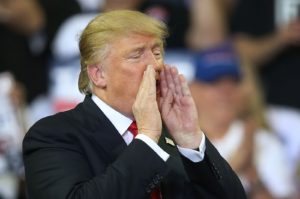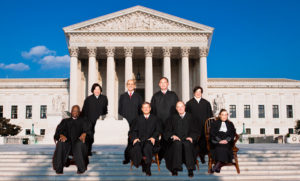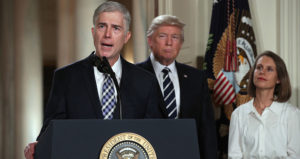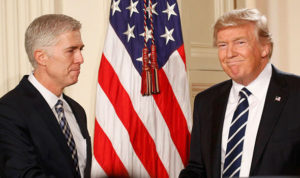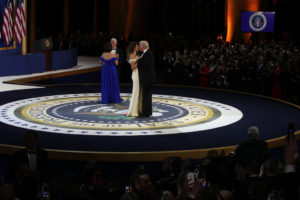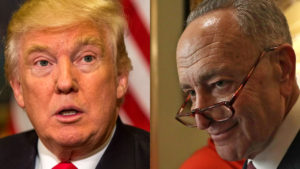Donald J. Trump’s fight with the federal judiciary could be shaping up to be a donnybrook.
The president instituted a temporary restriction on travelers seeking to enter the United States from seven Muslim-majority countries; then U.S. District Judge James Robart in Washington state struck it down, prompting Trump to call Robart a “so-called judge” and said the nation should blame him if a terrorist sneaks into the country and does harm.
There’s more. The 9th Circuit Court of Appeals is hearing the Trump administration’s appeal and the three-judge panel that heard the case is sounding skeptical of the president’s order.
The plot thickens. If the 9th Court rejects the appeal, then it goes to the U.S. Supreme Court, which at the moment stands at eight members. Suppose, then, that the high court deadlocks — with the four conservative justices voting in favor of the ban and the five liberals oppose it. The lower-court ruling stands.
There’s some chatter now about whether the Supreme Court will be affected in some manner by the untoward things the president has said about the federal judiciary.
Has Trump crossed a serious line? Some scholars believe the president’s Twitter tirades against Robart in particular and the federal bench in general crosses the separation of powers line between the judicial and executive branches of government.
Get a load of this from The Hill:
“The criticism extends beyond judicial scholars.
“Rep. Mark Sanford (R-S.C.) warned that Trump’s attacks, if they continue, threaten not only to undermine the separation of powers but also the president’s own policy agenda.
“’We’re a nation of laws and not men, and this idea of ‘follow me because I say so’ is completely at odds with the Founding Fathers’ intent,’ said Sanford, a Trump supporter who has also criticized the president on certain issues.
“’I learned a long time ago in politics [that] attacking the person or the group that will decide your fate on a given issue generally doesn’t work out that well,’ he added.”
This is yet another matter of governance that the brand new president just doesn’t seem to understand.
